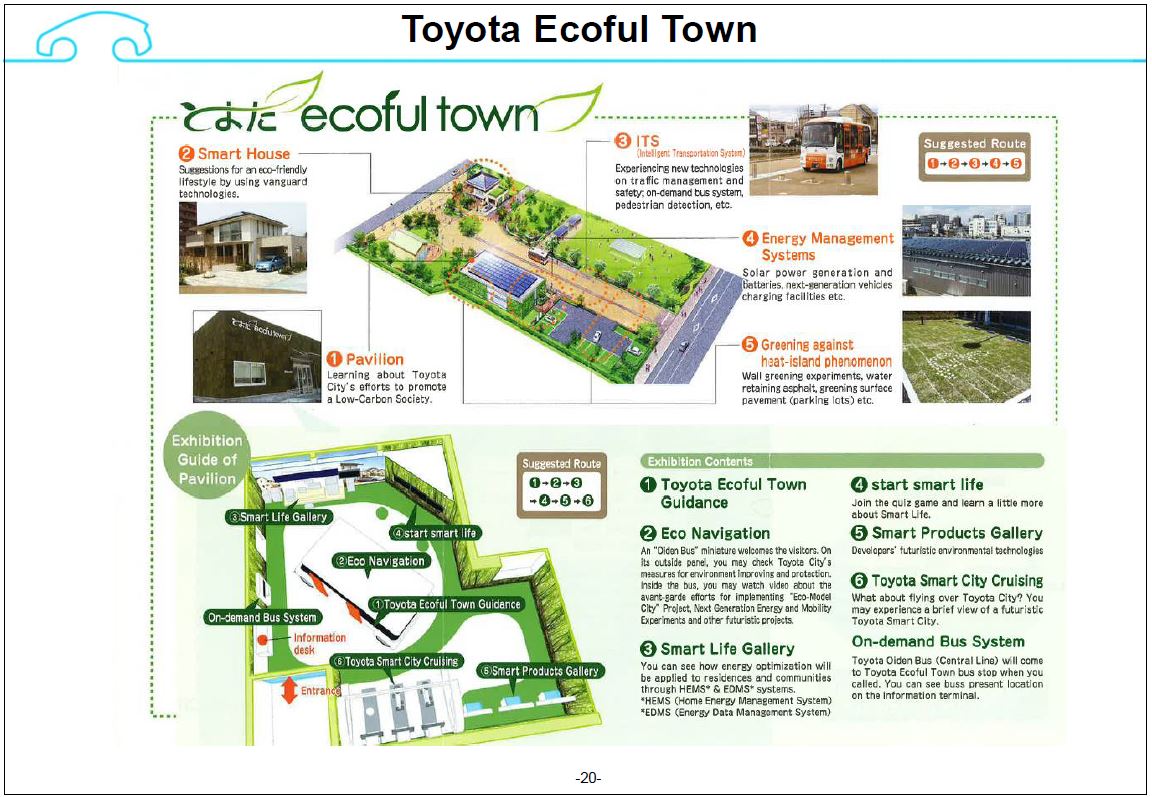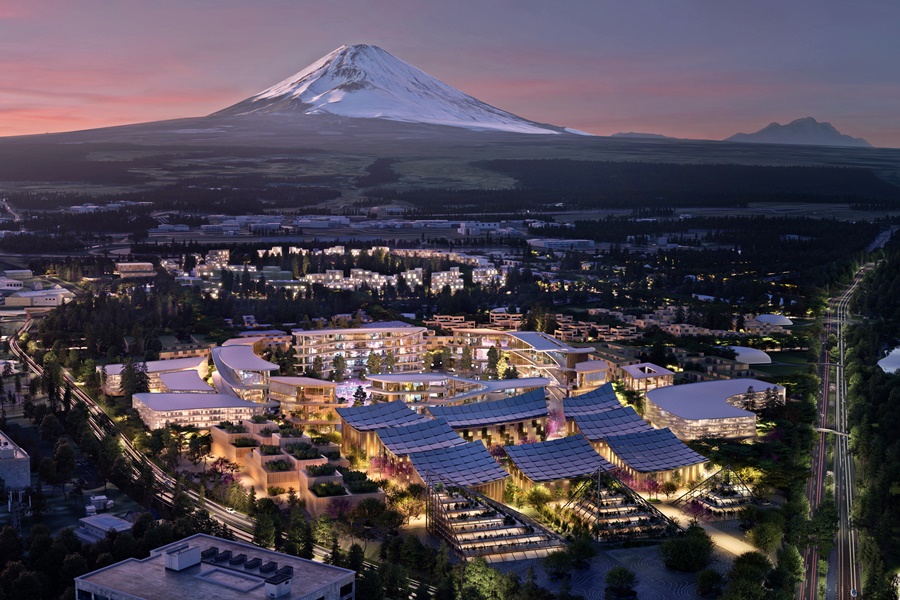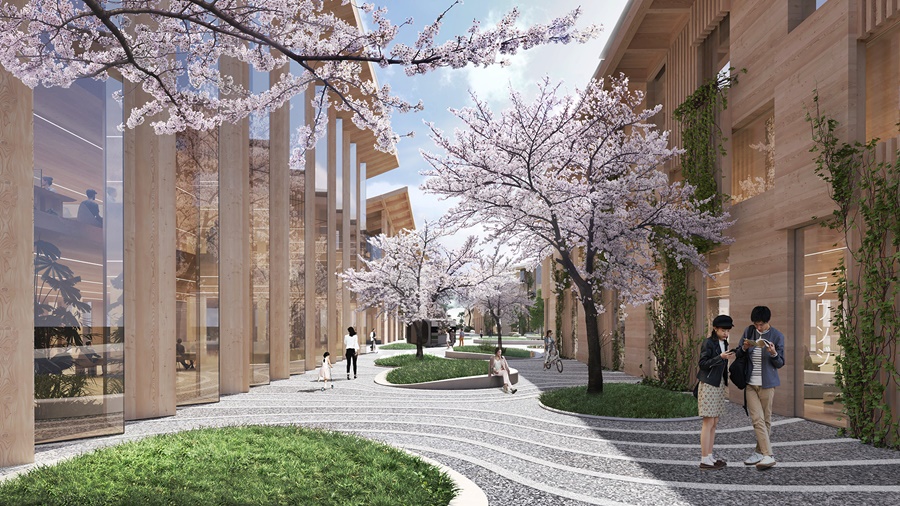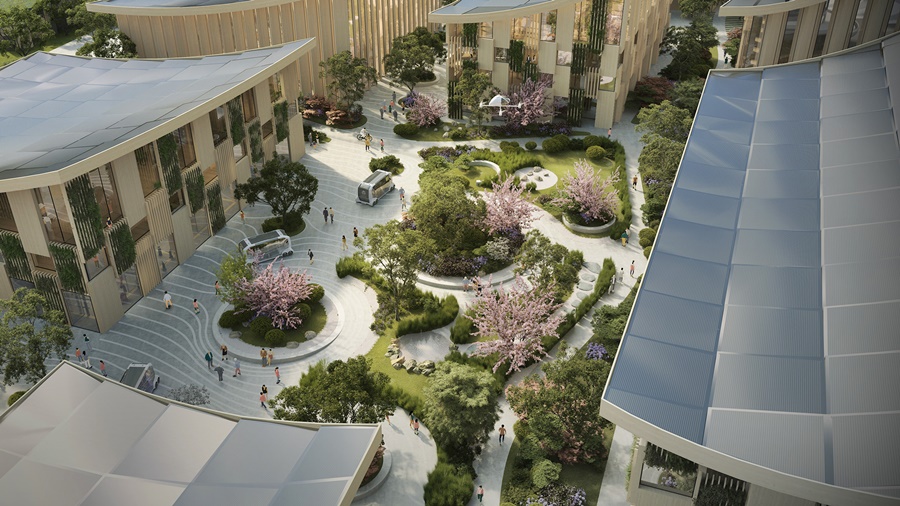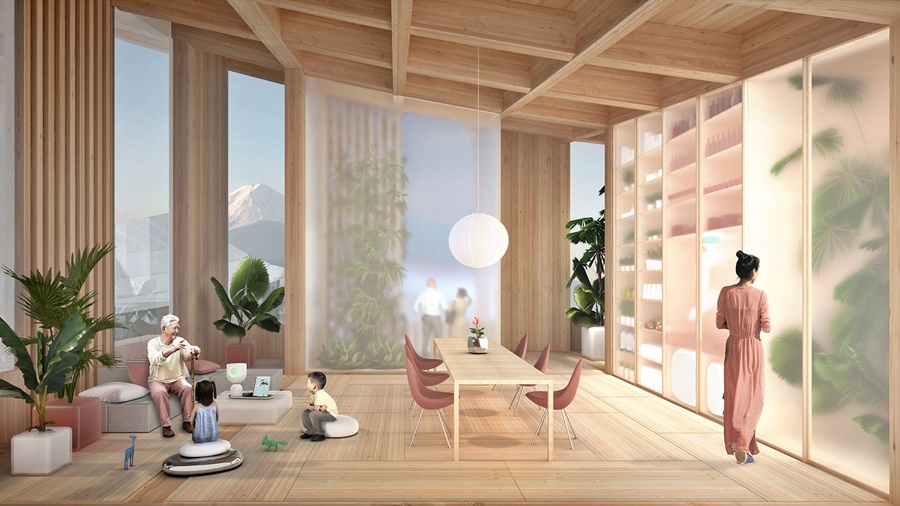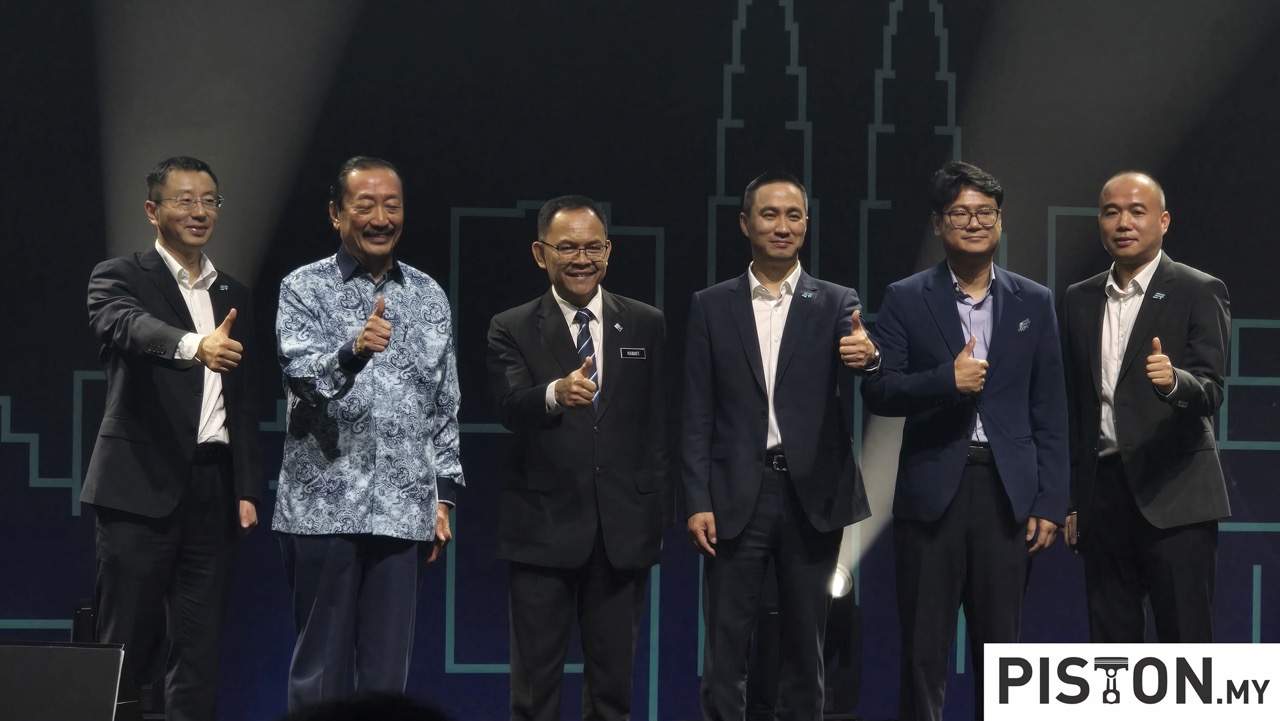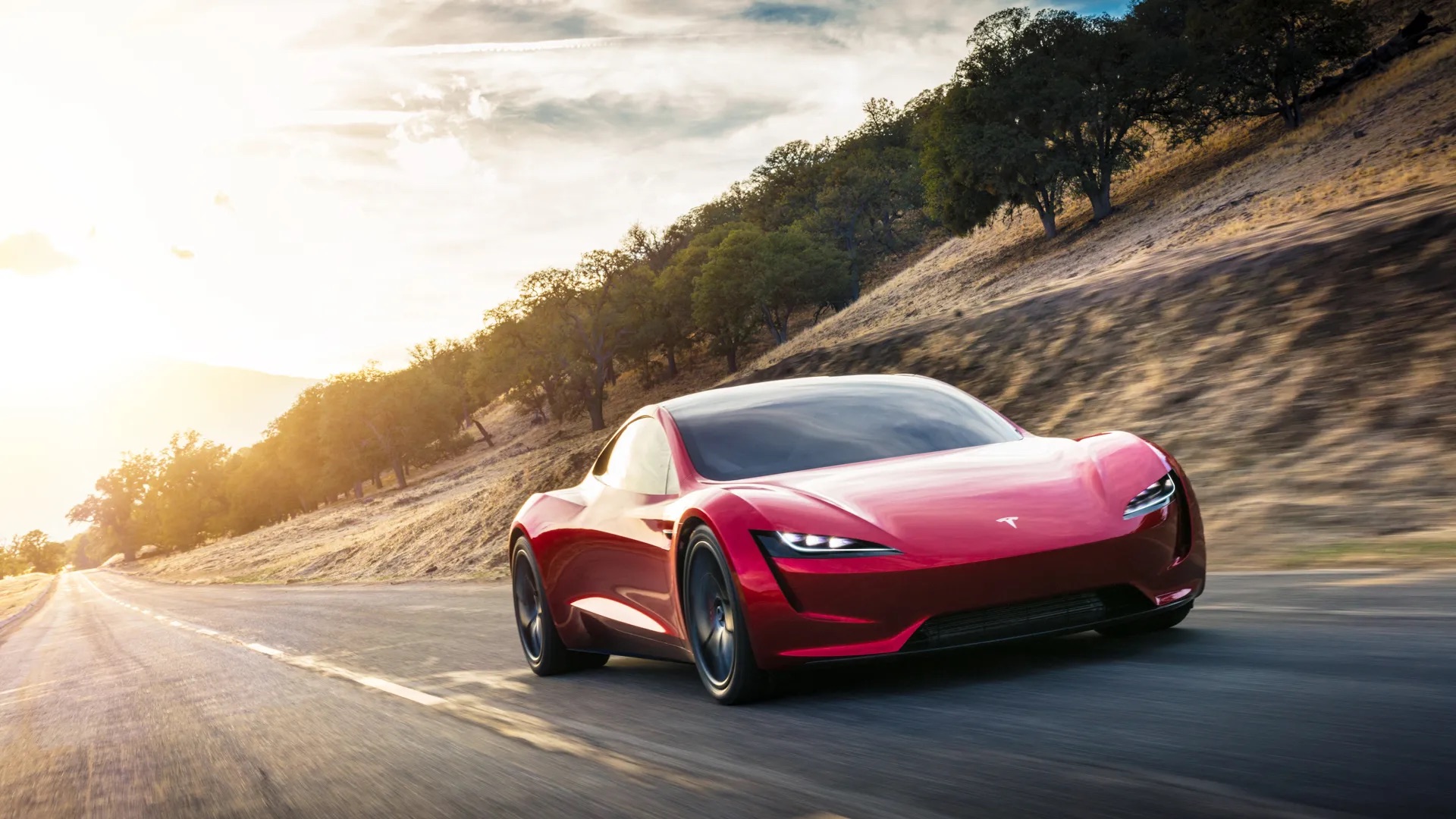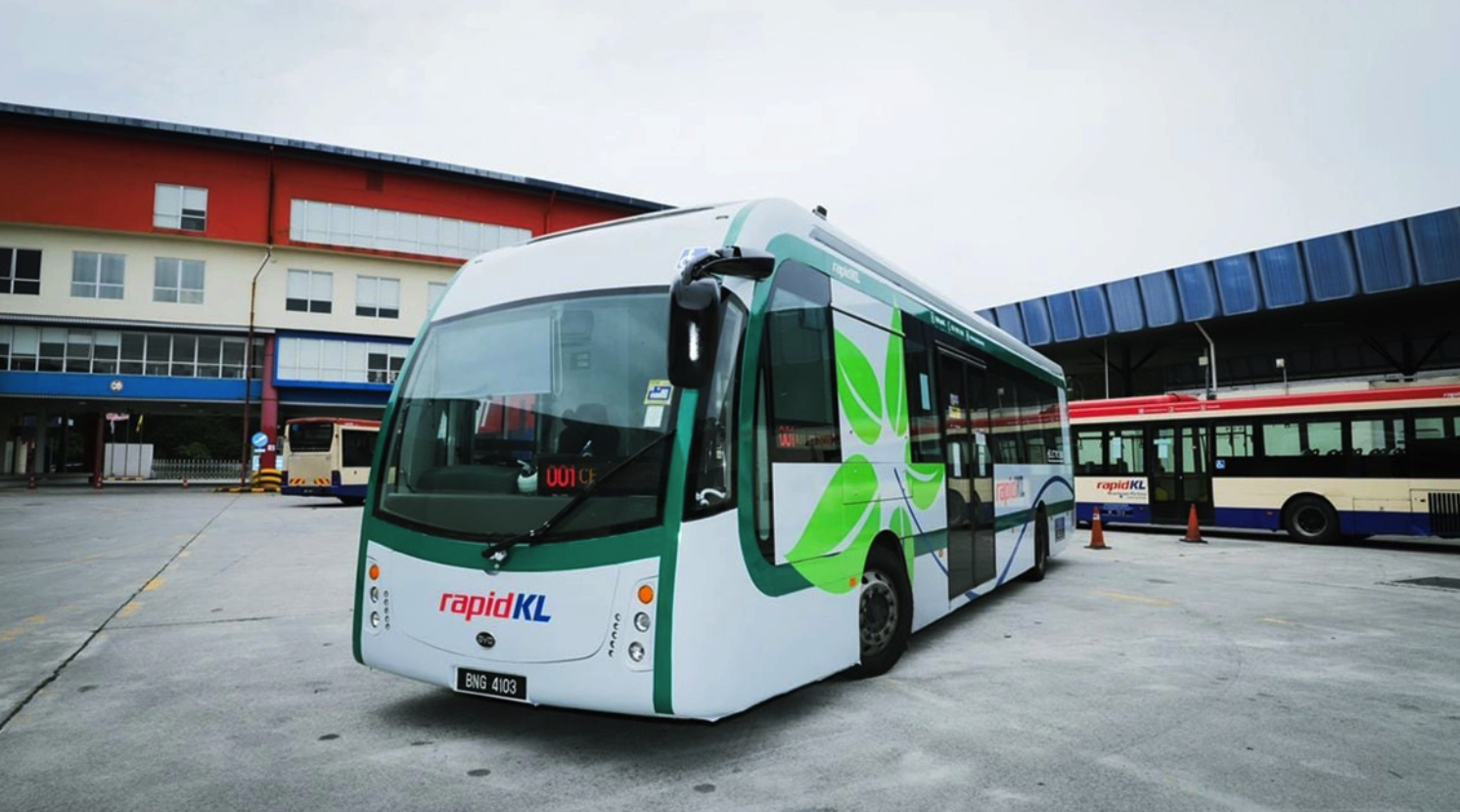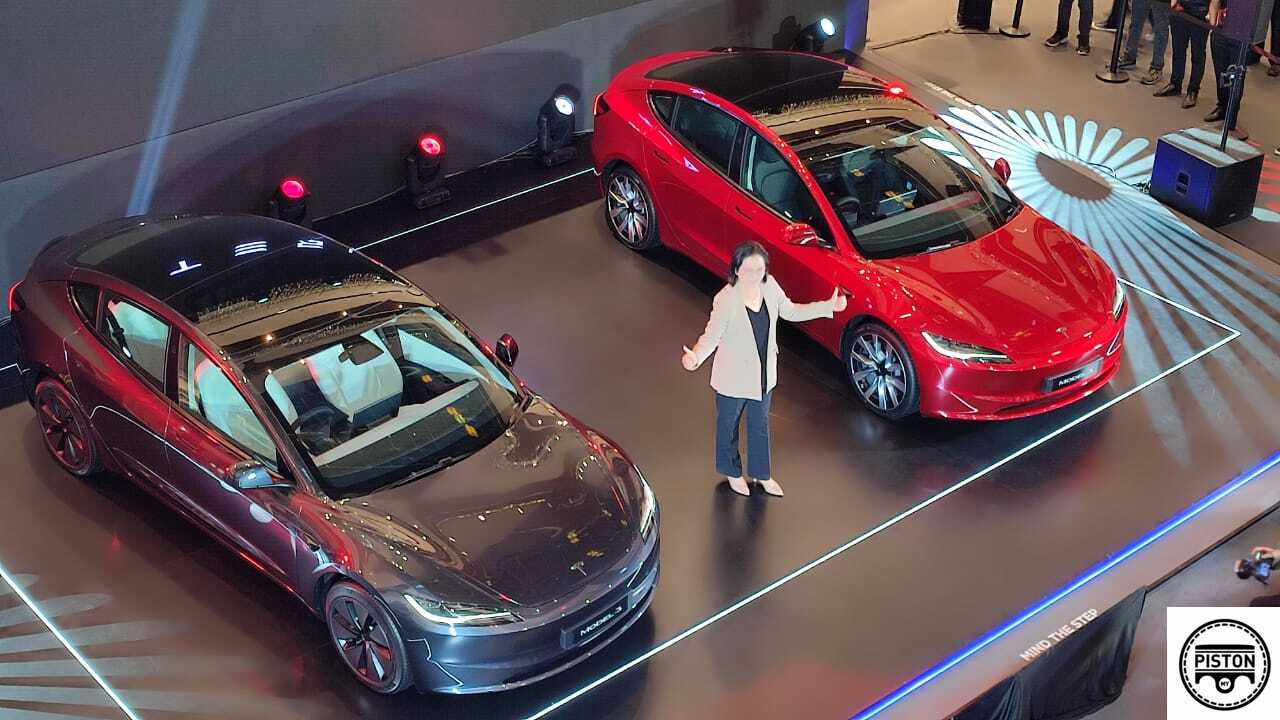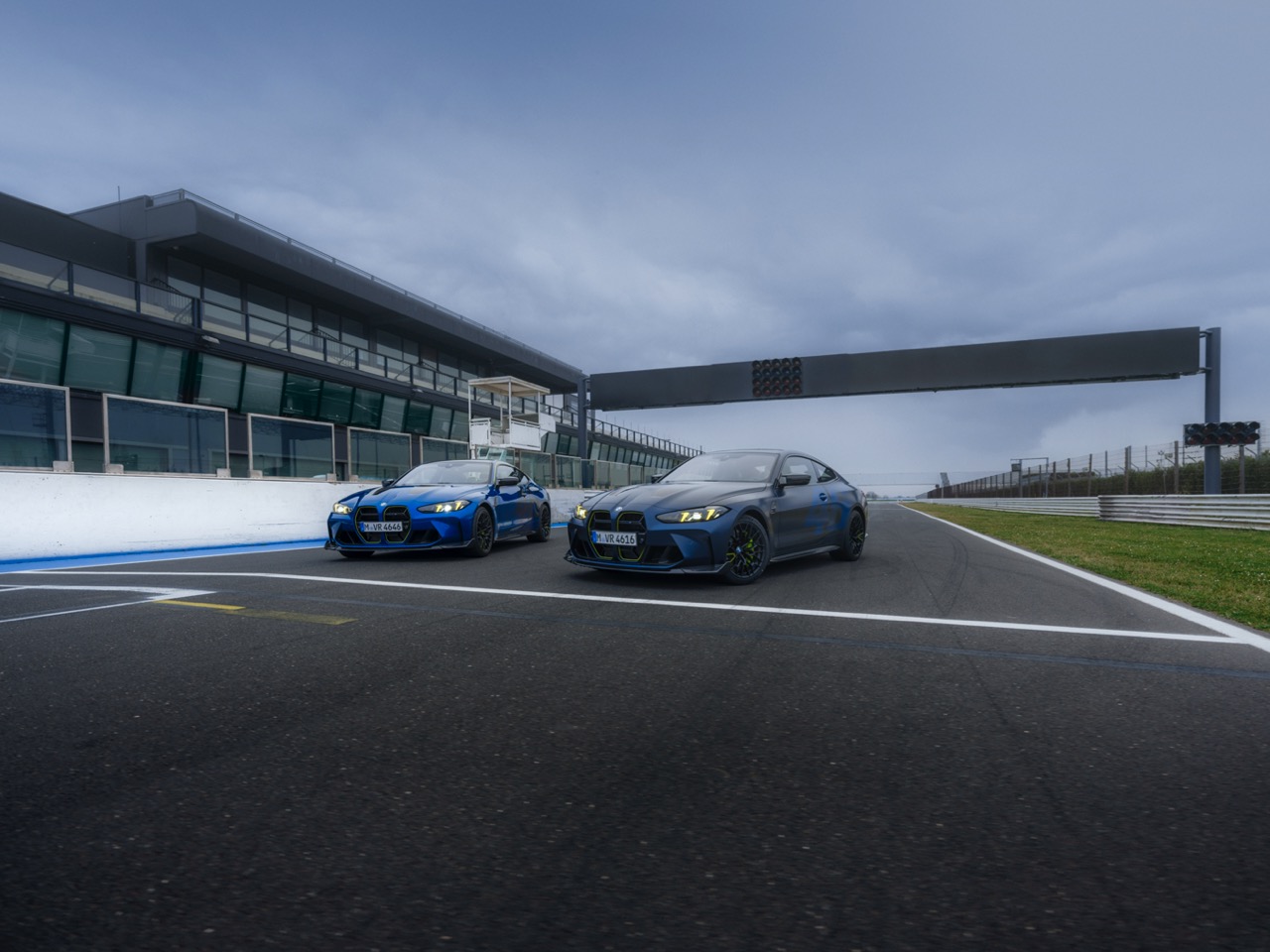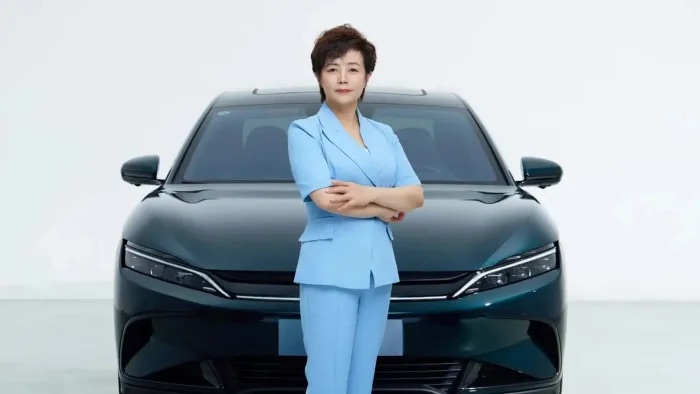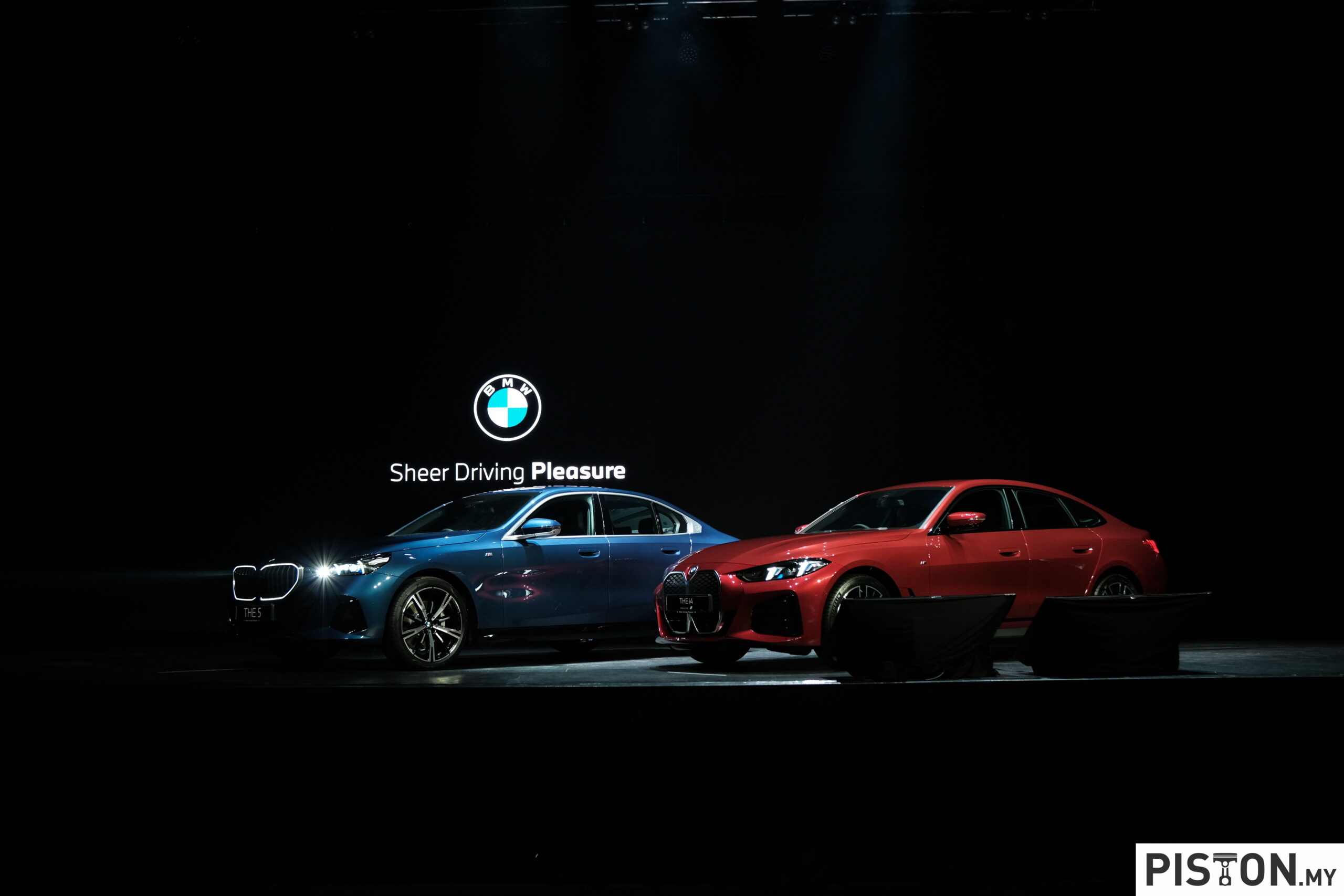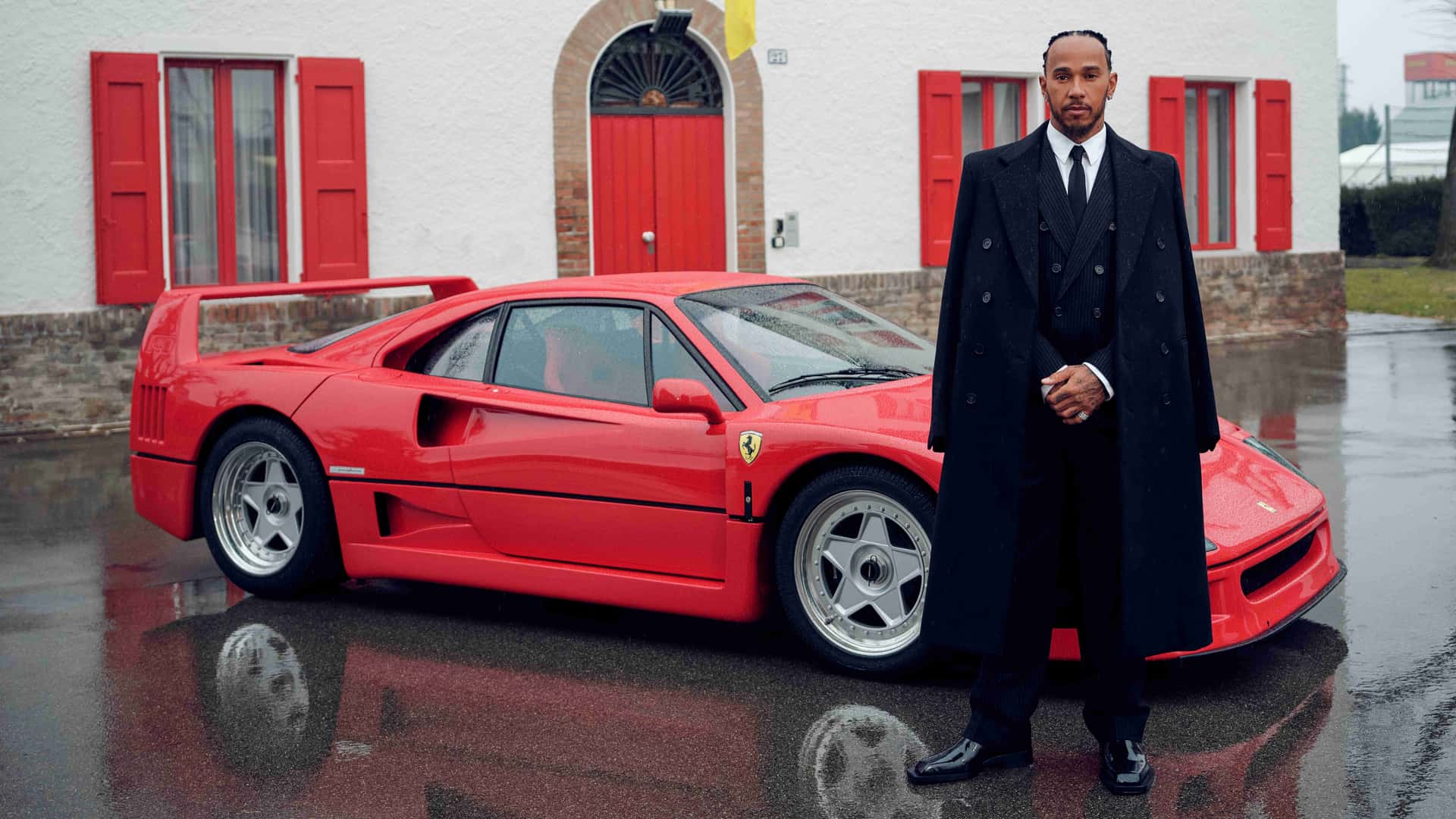When ‘Toyota’ is mentioned, the first thing that comes to mind will be the motorcar. This is the product that the company has been making since the 1930s and is a global leader in the auto industry. However, motor vehicles are not Toyota’s only business (in fact, textile looms feature in its earliest history) and apart from many other types of products, Toyota has been involved in the housing business since the mid-1970s.
Initially, the company produced prefabricated houses that could be easily constructed using a variety of different building techniques. It then expanded its business to include condominiums and rental housing. Today, the Toyota Housing Corporation is a successful subsidiary of the world’s No. 1 automaker. Employing lean manufacturing concepts and strategies from The Toyota Production System, the construction techniques meet high quality and efficiency standards.

From offering individual houses, Toyota now plans to make a giant leap to the next level as it has revealed plans to build a prototype “city” of the future. Announced at CES 2020 in Las Vegas, the Woven City, as it is called, will be located on a 175-acre site at the base of Mt. Fuji in Japan. The ground-breaking for the site is planned for early 2021.
Envisioned as a ‘living laboratory’, the Woven City will serve as a home to full-time residents and researchers who will be able to test and develop technologies such as autonomy, robotics, personal mobility, smart homes and artificial intelligence in a real-world environment.
“Building a complete city from the ground up, even on a small scale like this, is a unique opportunity to develop future technologies, including a digital operating system for the city’s infrastructure. With people, buildings and vehicles all connected and communicating with each other through data and sensors, we will be able to test connected AI technology… in both the virtual and the physical realms… maximizing its potential,” said Akio Toyoda, President, Toyota Motor Corporation.
Toyota will extend an open invitation to collaborate with other commercial and academic partners and invite interested scientists and researchers from around the world to come work on their own projects in this one-of-a-kind, real-world incubator.
“We welcome all those inspired to improve the way we live in the future, to take advantage of this unique research ecosystem and join us in our quest to create an ever-better way of life and mobility for all,” said the Toyota President.
For the design of Woven City, Toyota has commissioned the Bjarke Ingels Group (BIG). Danish architect Bjarke Ingels and his team at BIG have designed many high-profile projects such as 2 World Trade Centre in New York and Lego House in Denmark. The firm was also responsible for the design of Google’s Mountain View and London headquarters.
“A swarm of different technologies are beginning to radically change how we inhabit and navigate our cities. Connected, autonomous, emission-free and shared mobility solutions are bound to unleash a world of opportunities for new forms of urban life. With the breadth of technologies and industries that we have been able to access and collaborate with from the Toyota ecosystem of companies, we believe we have a unique opportunity to explore new forms of urbanity with the Woven City that could pave new paths for other cities to explore,” said Ingels.
Design of the city
The masterplan of the city includes the designations for street usage into 3 types: for faster vehicles only; for a mix of lower speed, personal mobility and pedestrians; and for a park-like promenade for pedestrians only. These 3 street types weave together to form an organic grid pattern to help accelerate the testing of autonomy.
The city is planned to be fully sustainable, with buildings made mostly of wood to minimize the carbon footprint, using traditional Japanese wood joinery, combined with robotic production methods. The rooftops will be covered in photo-voltaic panels to generate solar power in addition to power generated by hydrogen fuel cells. Toyota plans to weave in the outdoors throughout the city, with native vegetation and hydroponics.
Residences will be equipped with the latest in human support technologies, such as in-home robotics to assist with daily living. The homes will use sensor-based AI to check occupants’ health, take care of basic needs and enhance daily life, creating an opportunity to deploy connected technology with integrity and trust, securely and positively.
To move residents through the city, only fully-autonomous, zero-emission vehicles will be allowed on the main thoroughfares. In and throughout Woven City, autonomous Toyota e-Palettes will be used for transportation and deliveries, as well as for changeable mobile retail.
Both neighbourhood parks and a large central park for recreation, as well as a central plaza for social gatherings, are designed to bring the community together. Toyota believes that encouraging human connection will be an equally important aspect of this experience.
Toyota plans to populate Woven City with Toyota Motor Corporation employees and their families, retired couples, retailers, visiting scientists, and industry partners. The plan is for 2,000 people to start, adding more as the project evolves.
